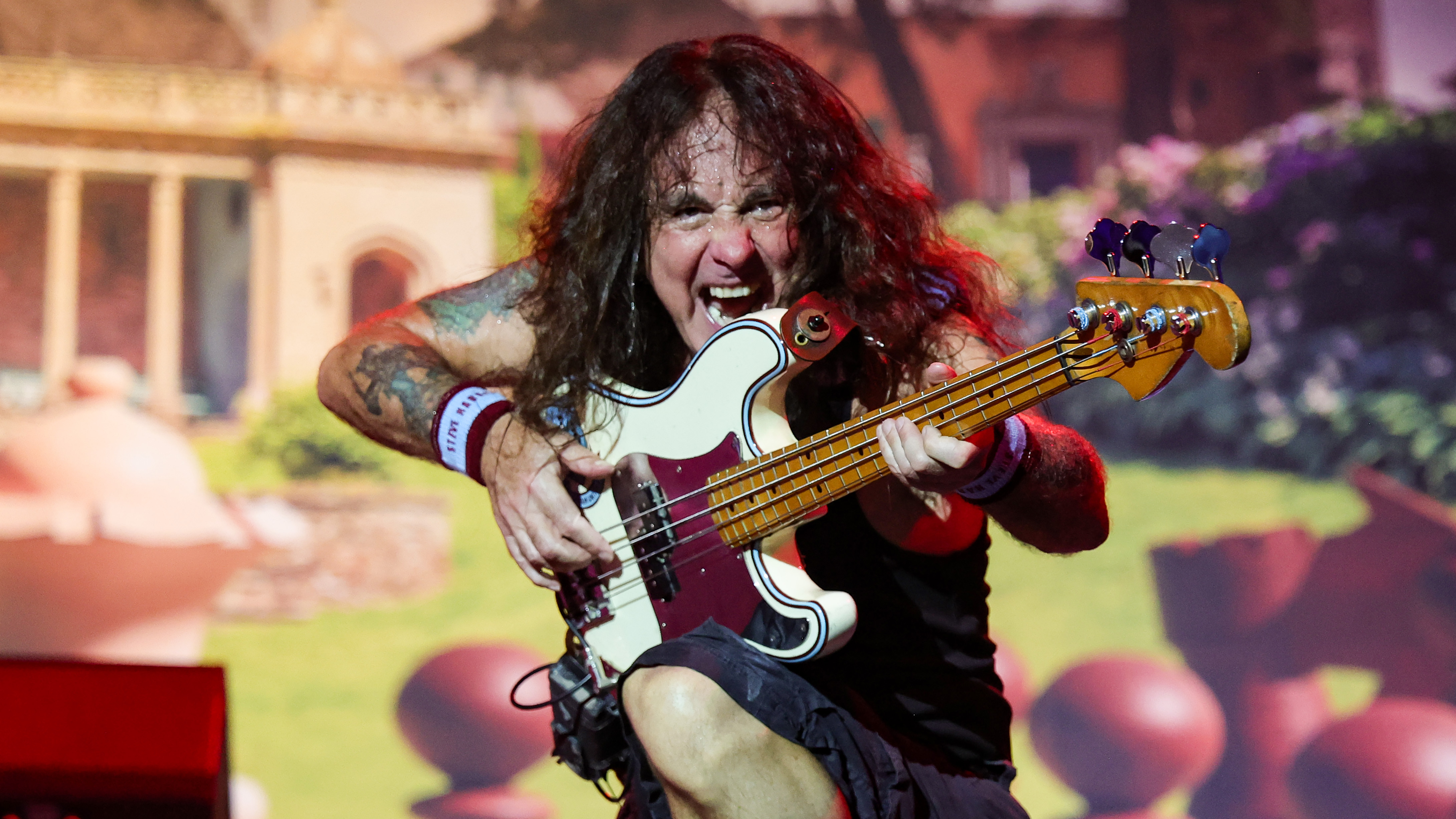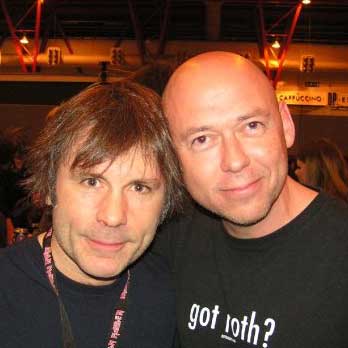“I think singers tend to be a little insecure!”: Iron Maiden leader Steve Harris recalls how he gambled everything by changing the band’s frontman
“It was exciting but worrying,” he says

Iron Maiden bassist Steve Harris says that firing singer Paul Di’Anno and replacing him with Bruce Dickinson was one of the toughest decisions he has ever made. And he admits that he was worried that changing singers might derail the band’s career.
Speaking to MusicRadar, Harris recalls how he decided to make that change in the summer of 1981.
“We’d had a number four album with the first album,” he says, “and the second album got to number 11 or something in the UK. So we were already doing really well.”
On tour, however, Di’Anno’s taste for partying had become a problem. A few gigs were cancelled after Di’Anno lost his voice.
Harris believes that Di’Anno had a self-destructive streak.
“Whether that's true or not, I don't know,” he says, “but that's the feeling I got with him. I think singers tend to be a little insecure anyway. Not all of them, but a lot of them are, and they disguise that with bravado.
“We were touring a lot and Paul was putting up resistance to a lot of it. He was pissed off half the time because we were getting him to do things he wasn't that comfortable with. So there was a bit of that going on.
Get the MusicRadar Newsletter
Want all the hottest music and gear news, reviews, deals, features and more, direct to your inbox? Sign up here.
“And he’d do stupid things just to wind us up. But that was Paul. It’s just the way he was.”
Before Di’Anno was fired, Harris had already identified the singer who would replace Di’Anno. Bruce Dickinson was the frontman for Samson, a band that had emerged alongside Iron Maiden in the New Wave of British Heavy Metal.
But when the change was made, Harris had doubts. “After all that hard work we’d done, I was thinking, ’Is it all gonna go out the window, because we've had a singer change, no matter how good Bruce is?’”
With Dickinson on board, the band recorded a new album that would over time become legendary - The Number Of The Beast. But in early 1982, as they prepared for a UK tour, Harris’s doubts remained.
“We knew it was a strong album,” Harris says. “We knew we had good songs on there, but I've heard other albums that have been really good over the years and not really sold - other bands that have fallen by the wayside. So there were no guarantees at all.
“We didn't know if we were going to sell loads of tickets. So it was exciting, but worrying at the same time.”
As it turned out, the Beast On The Road tour was a triumph, after which Maiden never looked back.
“The whole tour was amazing,” he says. “We were playing stuff that the fans didn't know, because the album hadn’t come out yet. It didn’t come out until the end of the tour, it was a bit of a mad time, crazy, trying to get the thing out the door.
"So we released a single just so we had something to go out with. We rushed Run To The Hills out, and that did incredibly well.”
Run To The Hills reached No.7 on the UK chart. The album went to No.1.
“Bruce took us to a different level,” Harris says now. “I really think he did, although at the time we didn't know if that was going to be the case.”

Paul Elliott has worked for leading music titles since 1985, including Sounds, Kerrang!, MOJO and Q. He is the author of several books including the first biography of Guns N’ Roses and the autobiography of bodyguard-to-the-stars Danny Francis. He has written liner notes for classic album reissues by artists such as Def Leppard, Thin Lizzy and Kiss. He lives in Bath - of which David Coverdale recently said: “How very Roman of you!”
You must confirm your public display name before commenting
Please logout and then login again, you will then be prompted to enter your display name.











